CHIBE and PAIR Host 2023 Roybal Retreat
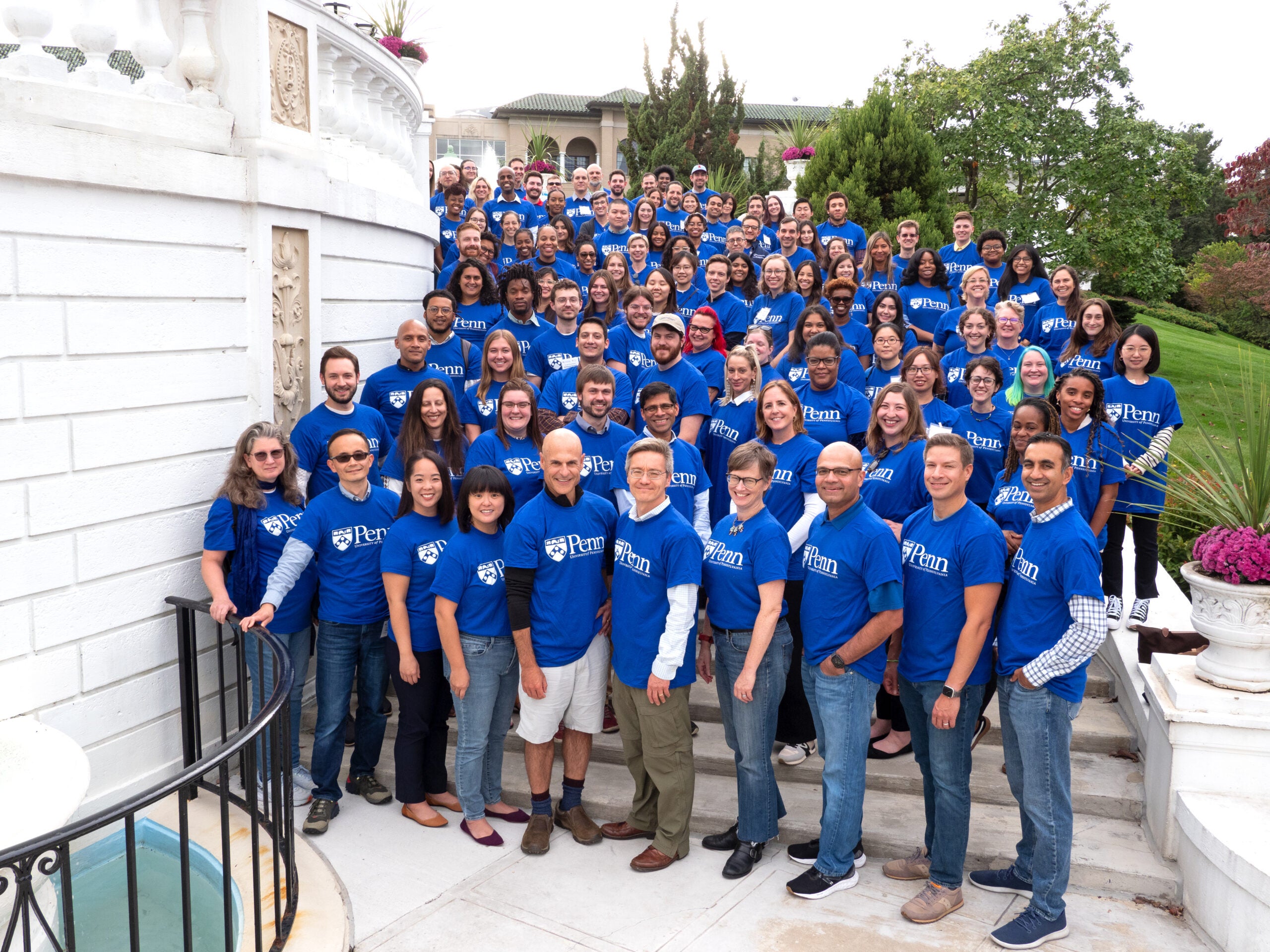
The Center for Health Incentives and Behavioral Economics (CHIBE) and the Palliative and Advanced Illness Research (PAIR) Center hosted the Roybal Retreat this year at the Hershey Hotel with important conversations on topics such as safe driving, health inequities in Philadelphia, medical cannabis, critical care disparities, opioid prescribing, and much more.
CHIBE Director Kevin Volpp, MD, PhD, and PAIR Director Scott Halpern, MD, PhD, MBE, delivered opening remarks at the retreat, recognizing many faculty and staff for awards and research achievements. Dr. Volpp also announced the news that CHIBE launched a new website and annual report, and he also shared some of the testimonials that CHIBE partners and external advisory board members have expressed.
“I just wanted to share these with you because we’re all working hard day to day, head down, and you don’t realize how much your work is being recognized by lots of leaders out there. [Your work] has the potential to have a significant impact on improving people’s lives,” Dr. Volpp said.
CHIBE and PAIR also welcomed Kenneth E. Freedland, PhD, FABCT, Professor of Psychiatry and Psychology at Washington University School of Medicine in St. Louis, as the keynote speaker this year. Dr. Freedland spoke about pilot trials in health-related behavioral intervention research. He argued that most pilot studies have been preliminary efficacy trials (PETs) that are severely underpowered (by design) and that when larger efficacy trials are conducted, they usually produce smaller effects than PETs or even null results. Dr. Freedland posited that PETs do more harm than good, and he recommended that researchers support the credibility of an intervention by obtaining stakeholder input, translating basic science findings into clinical intervention techniques, conducting early-stage studies to develop and refine the intervention, and supporting the plausibility of an effect by providing proof of concept data. He also recommended thoughtful choices of clinically significant targets, minimal important difference (MIDs) or minimal clinically important difference (MCIDs).
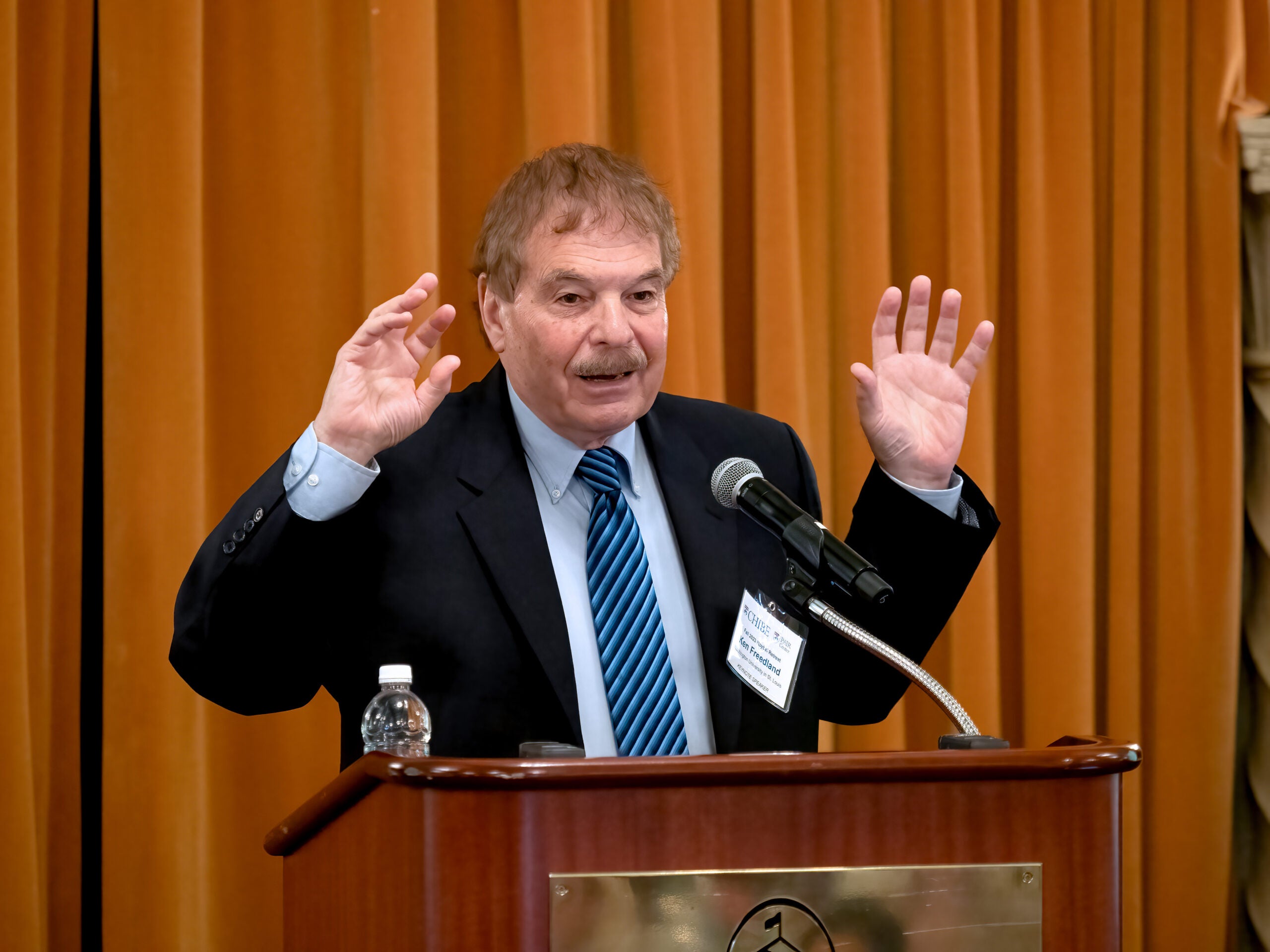
Attendees also participated in two workshops during the retreat. One was led by the Joint Research Practices working group, who encouraged faculty and staff to think about how to promote equity in their research projects. Faculty and staff wrote down one specific action they committed to taking following the workshop on a sticky note, which was displayed on bulletin boards. In another workshop, attendees learned about “PhotoVoice,” which helps identify community engagement priorities.
Faculty and staff also enjoyed a poster session and participated in team-building activities such as disc golf, pick-up games, a food truck activity, Phillies game watch, and musical bingo. CHIBE and PAIR hope attendees were able to build and strengthen relationships, not just among the teams they work with day to day, but also across disciplines and institutions.
Thanks to all of you who joined us for this year’s retreat and for your commitment to the fields of behavioral economics, health, and serious illness care.
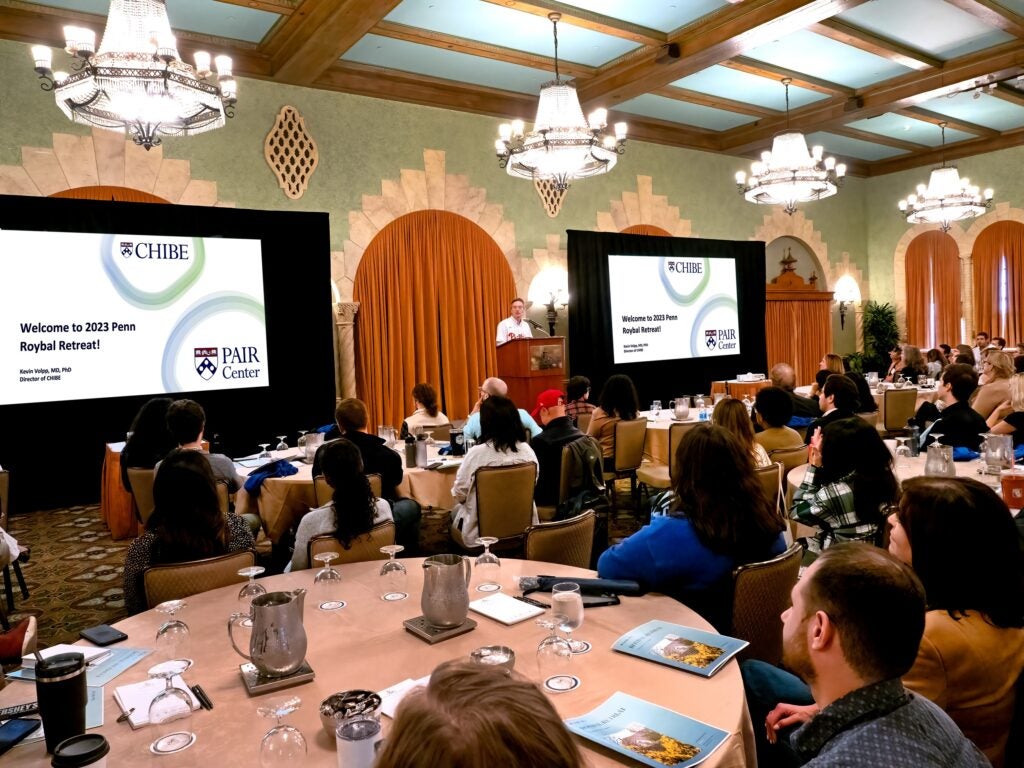
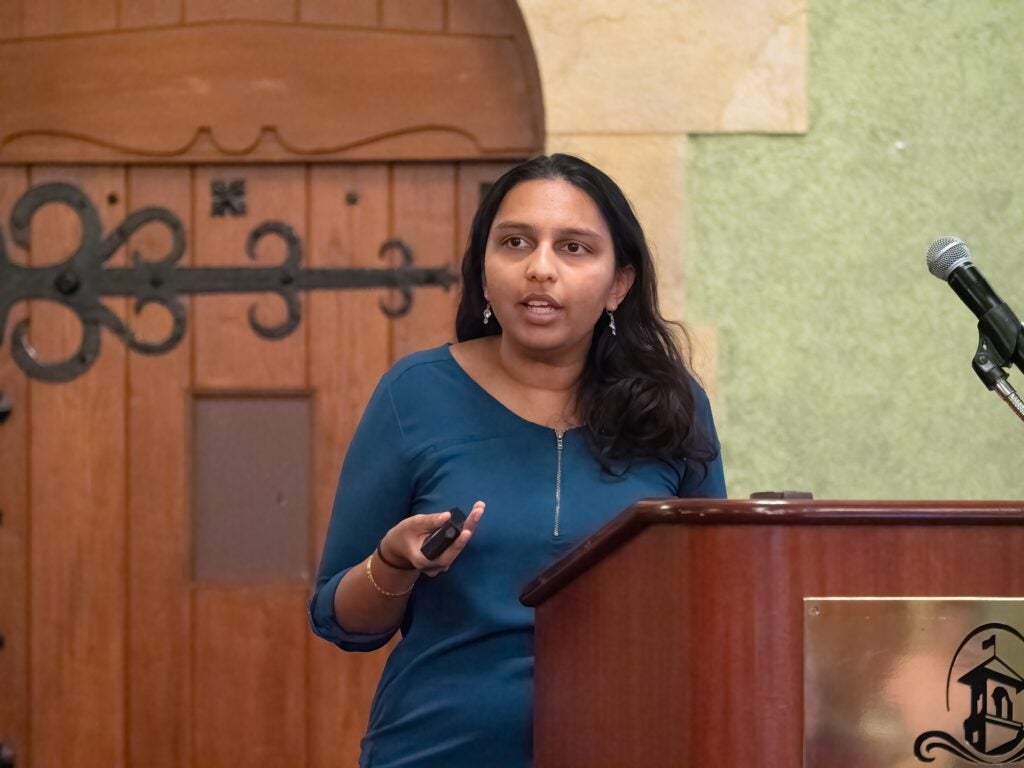
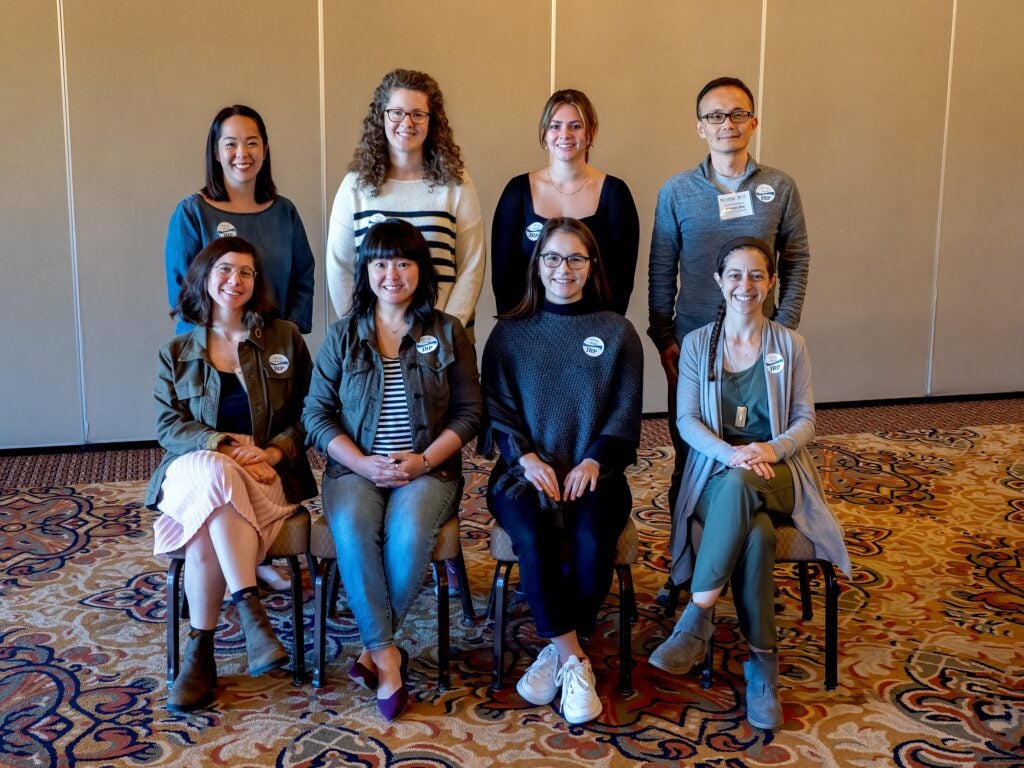
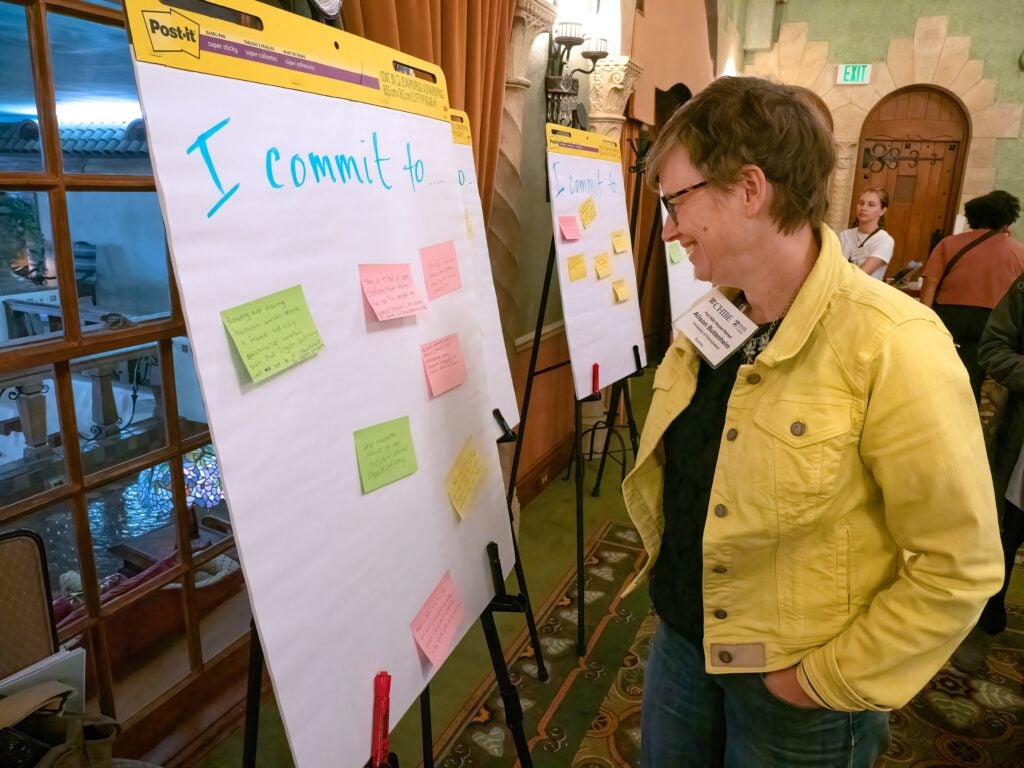
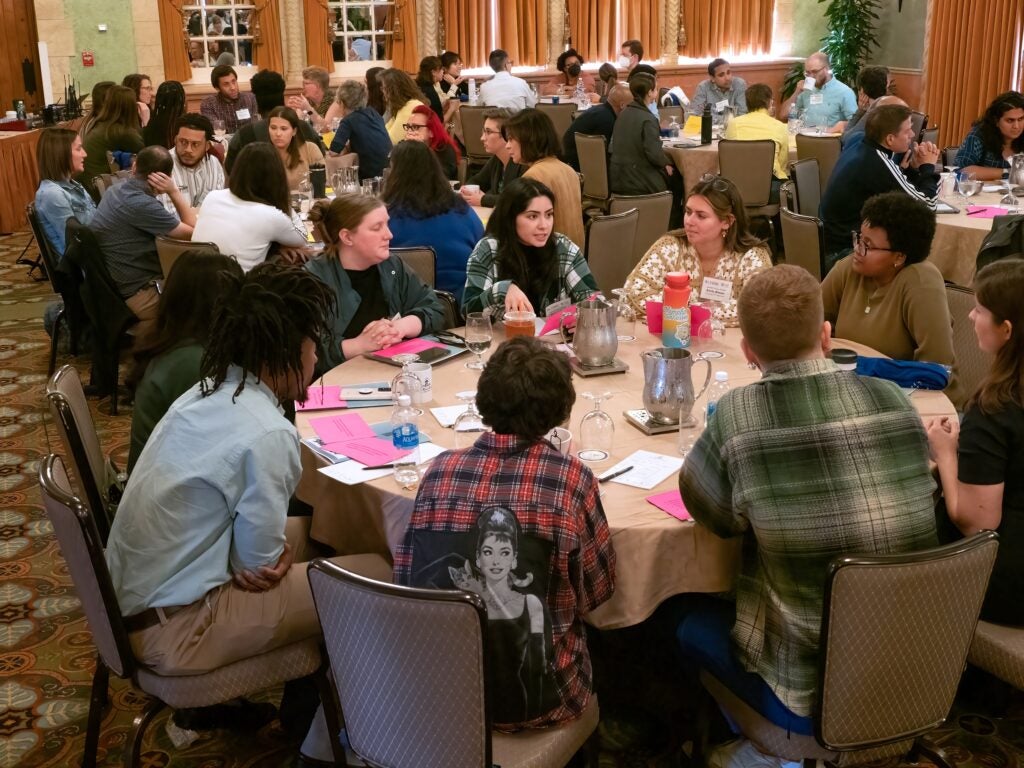
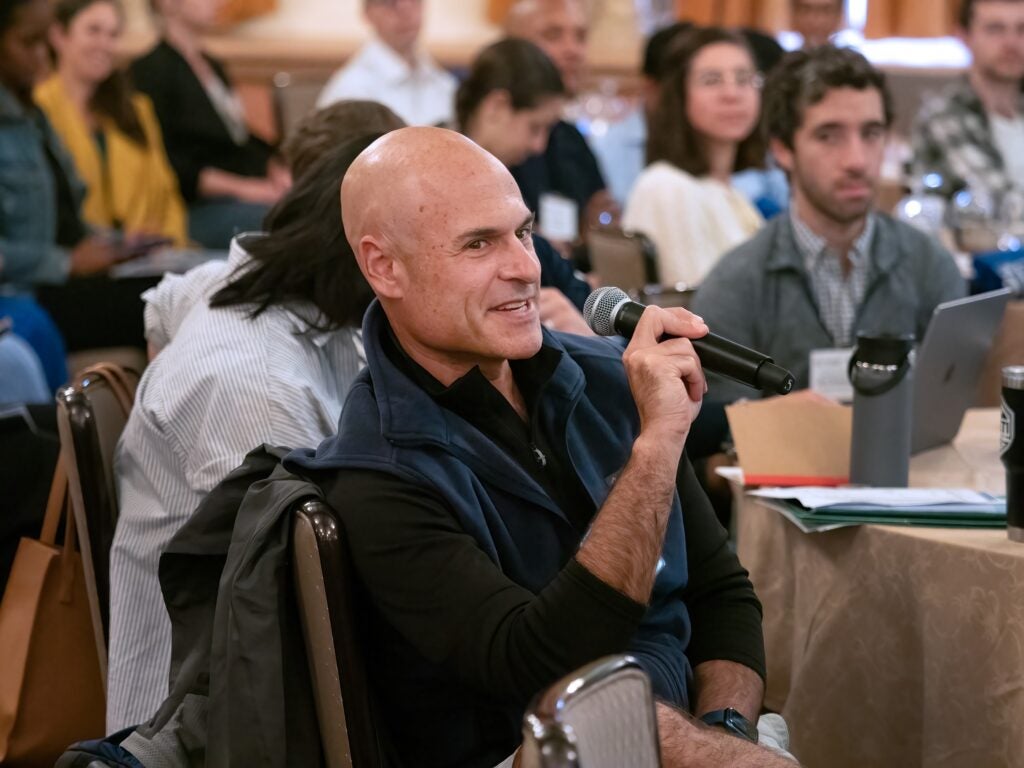

Thanks to Hoag Levins from LDI for photography!